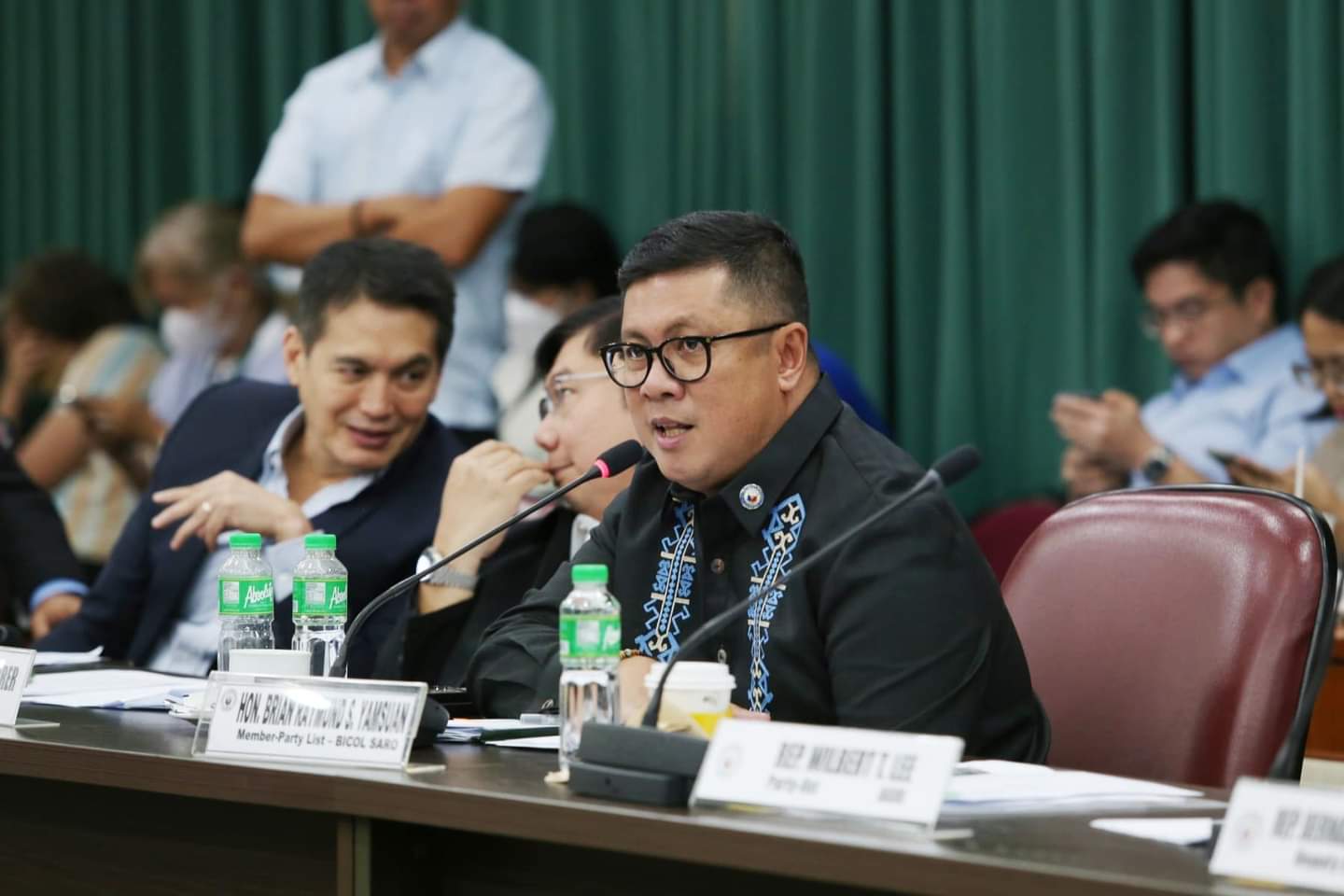Yamsuan: China's 'reckless, dangerous' moves justify quick passage of archipelagic sea lanes bill
At A Glance
- China's latest "reckless and dangerous actions" in the West Philippine Sea (WPS) give all the more reason for congressmen to hasten the approval of the archipelagic sea lanes bill, said Bicol Saro Party-list Rep. Brian Raymund Yamsuan.
 Bicol Saro Party-list Brian Yamsuan (Facebook)
Bicol Saro Party-list Brian Yamsuan (Facebook)
China's latest "reckless and dangerous actions" in the West Philippine Sea (WPS) give all the more reason for congressmen to hasten the approval of the archipelagic sea lanes bill.
Thus, said Bicol Saro Party-list Rep. Brian Raymund Yamsuan Wednesday, Oct. 25 as he urged his House of Representatives colleagues to work together on the swift approval of the measure that would delineate the Philippines’ archipelagic sea lanes as a means to bar the unauthorized passage of foreign vessels within the country’s territorial waters and airspace.
“I urge fellow lawmakers to act quickly on the measure designating our archipelagic sea lanes when Congress resumes session next month,” Yamsuan said, referring to House Bill (HB) No. 9034, which he authored.
“We join Speaker Ferdinand Martin Romualdez in strongly condemning China’s reckless and dangerous actions in the WPS These acts pose a threat to regional peace and stability and are blatant violations of international law,” Yamsuan, a member of the House Special Committee on the West Philippine Sea, said.
Last Oct. 22, a Chinese Coast Guard vessel hit and bumped a Philippine Navy-contracted boat ferrying supplies to BRP Sierra Madre, while another vessel of the Chinese maritime militia also bumped the Philippine Coast Guard (PCG) vessel MRRV Cabra.
President Marcos has ordered the PCG to conduct an investigation into the incident.
“While China continues to disregard our freedom of navigation within our own exclusive economic zone (EEZ), we should act quickly to ensure that such actions do not embolden them to encroach on our territorial waters and conduct any kind of activity without the permission of our government,” Yamsuan said.
Yamsuan noted that the Office of the Solicitor General (OSG) and the National Security Council (NSC) have said that establishing the Philippines’ archipelagic sea lanes and implementing a Maritime Zones Act would strengthen the Philippines’ position with respect to obligating other countries to comply with the provisions of international law.
In May, the House passed on third and final reading House Bill (HB) 7819 or its proposed Maritime Zones Act, which provides for a general declaration of the maritime zones under the jurisdiction of the Philippines. These include its internal waters, archipelagic waters, territorial sea, contiguous zone, EEZ and continental shelf.
On the other hand, HB No.9034, of which Yamsuan is among the principal authors, designates the sea lanes and air routes in the WPS for the continuous and speedy travel of foreign ships and aircraft exercising their right of innocent passage.
The President is empowered under the bill to fix the coordinates of the designated sea lanes, and substitute or add to them.
Yamsuan said the continued non-designation of the country’s archipelagic sea lanes “is tantamount to waiving this right under the United Nations Convention on the Law of the Sea (UNCLOS)".
Maritime law analysts have said that the measure designating archipelagic sea lanes covers only the Philippines’ inter-island waters and airspace.
However, there have been instances in the past when Chinese vessels have not only entered the Philippines’ EEZ, but also lingered for three days in its archipelagic waters without permission.
Yamsuan recalled that last year, the Department of Foreign Affairs (DFA) summoned the Chinese ambassador to explain why a navy reconnaissance ship of its People’s Liberation Army Navy (PLAN) entered Philippine waters without permission and stayed there for three days.
Both the Philippines and China are signatories to the UNCLOS.
Under HB No.9034, foreign ships and aircraft shall pass the designated sea lanes as quickly as possible for the sole purpose of “continuous, expeditious and unobstructed transit” and “shall refrain from any threat or use of force against the sovereignty, territorial integrity or political independence of the Republic of the Philippines”.